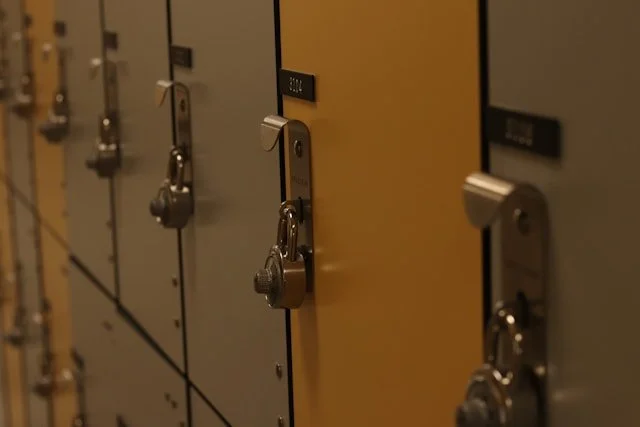Three ways attending church could extend your life: Rebecca McLaughlin says, “What you almost certainly won’t hear is that weekly church attendance is one of the very best things you can do for both your body and your mind. But that’s what researchers at the Harvard School of Public Health have found. In fact, they have discovered that going to church can add multiple years to your life.”
K-12 workers have highest burnout rate in US: Stephanie Marken and Sangeeta Agrawal report, “More than four in 10 K-12 workers in the U.S. (44%) say they "always" or "very often" feel burned out…
Preaching and Perspicuity
Monosyllabic.
Inflammable.
Abbreviation.
Phonetically.
Every one of these words are ironic. Monosyllabic means one syllable but contains five syllables. Inflammable means “easy to catch fire,” but looks like it means the opposite (not flammable). Abbreviation is not an abbreviation. And don’t phonetically should be spelled funetically, don’t you think?
Perspicuity means clarity or “ease of understanding” and yet isn’t very easy to understand. We’ll return to that later.
Roman Catholic theologians during the Middle Ages argued that the scripture was not perspicuous. Scripture was too veiled and obscure for the average person to understand, they contended.
Not Enough Wisdom
It was a cool February afternoon three years ago, our family piled in our aptly named Escape heading East on the I-8. We weave our way through Laguna Summit and the Cleveland National Forest, summiting the final miles of California and her Santa Ana Mountains on our way back to our home in the Sonoran Desert.
We just visited Concordia University, Irvine, a Lutheran school where our eldest, Camille, was offered a generous scholarship. Camille fell in love with Concordia’s professors, mission, and solid theological foundation on the trip. We rejoiced at her finding such a perfect fit for her. And we mourned her impending departure.
Dear Graduate, Where You Go Does Not Define Who You Are
Congratulations class of 2025! Whether you are graduating high school or college, you’ve been asked countless times and will be asked countless more: what’s next? Where are you going?
Maybe you have a set course. You are already rocking that U of A t-shirt and you are confident in four short years your photo will flash on the jumbotron at Arizona Stadium as you walk across the platform, Mechanical Engineering degree in hand. Or, as a college grad, maybe you’ve already said yes to that job offer from Tucson Unified School District and you’re ready to take on the world and 24 third graders.
Should My Counselor Be Licensed?
Looking for a counselor can be overwhelming. How do you know if they will be good? Are they properly trained? Are they a Christian? If they are a Christian, how much does their Christian worldview shape their counsel?
One of the most frequent pieces of advice I hear is to seek out a licensed Christian counselor. I recently finished a book by a counselor I respect who offered this advice a number of times throughout her book. Near the end of the book, she explained that she urges people to seek a licensed counselor because licensure certifies that the counselor has received proper training and isn’t offering faulty or half-baked advice.
An Upside-Down Guide to High School
I vividly remember freshman year, walking into the big leagues with 6-foot-tall basketball players roaming the same halls as myself. Looking to these 18-year-old giants, nay, men who had seemingly figured all things out as they were so very close to tasting the real world. The crowds of friends blocking the hallways, (would I ever be a part of that?), the guy and girl walking side by side, (will I ever have that?), the announcements of the valedictorian over the loudspeaker, and the waves of congratulations that followed their steps, (I wonder if people will ever recognize me?).
Paul's Advice To a College Freshman
This Week's Recommendations
Should Christian Parents Send Their Children to Public Schools: I’ve appreciated all of these debates and this one between Jen Wilkin and Jonathan Pennington demonstrates humility, grace, and understanding.
The Safest Place: Andrea Seaborn with an invitation, “When we live in His presence rather than imagining ourselves under His thumb, possibilities tumble in—frightening, exhilarating, wonder-filled or painful, but meaningful. Purposeful. Real.”
Be Slow to Pull the ‘God’ Card: Will Anderson says, “When the conversation turns from concrete biblical revelation to promptings, senses, urges, spontaneous thoughts, and claims of “God told me so,” it can feel squishy and prone to abuse.”
Telling the Truth: Brenda Pauken directs this to counselors, but the importance of learning to dig to be honest with oneself is important for all of us, “Many of us tell ourselves untrue things that make us feel better in the moment but don’t serve us well in the long run. Consider, “Yes, that was hard, but I’m fine,” or “It wasn’t a big deal.” These statements, along with “I had a happy childhood,” prevent us from facing the reality of our lives and hearts.” The second part of this piece is also well worth reading.
World Nature Photography Awards: Wow! That croc eye! And check out that Preying Mantis taking down a lizard.
Need a Book for the Pool?
Johnny Depp and a Few Degrees Off Course
Who wouldn’t want to be Johnny Depp?
And yet, all it takes is a quick scroll through the news to see that this man’s life inspires more pity than envy. Johnny Depp’s ex-wife, Amber Heard has accused Depp of domestic abuse. Depp has fought back with a lawsuit charging Heard with abuse. Whatever the truth of who initiated the violence, one can’t help but be sad for Heard and Depp. Physical endangerment, drug and alcohol abuse, and violent, vulgar words marked their toxic and tumultuous relationship.
It has also been reported that Depp managed to blow through $650 million of his $800+ million net worth. One can’t help but scratch your head and wonder how spending that kind of money in a decade is even possible. One gets the sense that Depp has become the living version of his big screen caricature: intoxicated and unmoored.
Who would want to be Johnny Depp?
I think of my daughter and her friends in the final months of their senior year. These are days where they are peppered with questions about their future, “What are your plans?” “Where are you going?” “What are you going to do next?”
Setting one’s sights even slightly off course can result in significant error down the path. Air navigation experts refer to the one in sixty rule, which means that for every degree a plane veers off course initially it will miss its target destination by one mile for every sixty miles flown. The results can be fatal.














